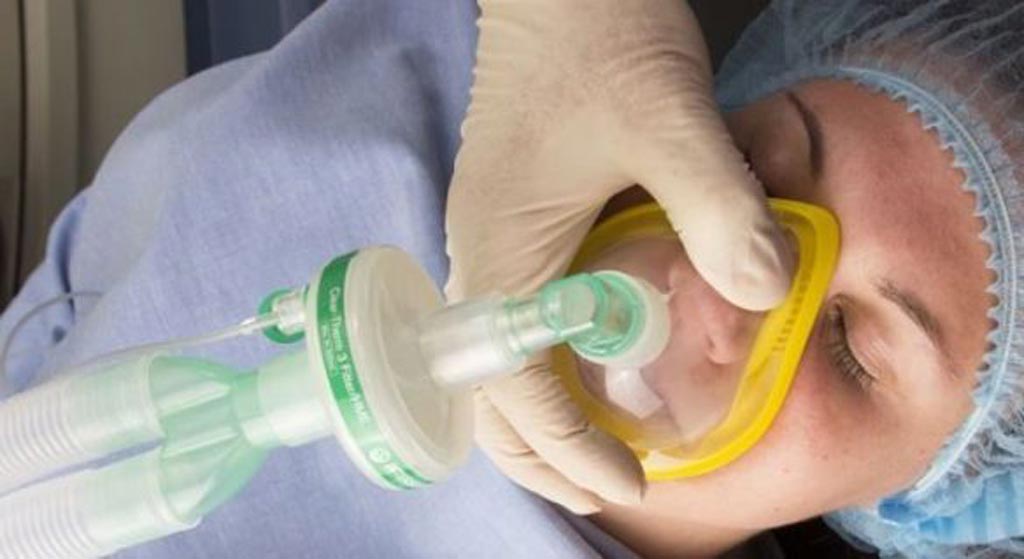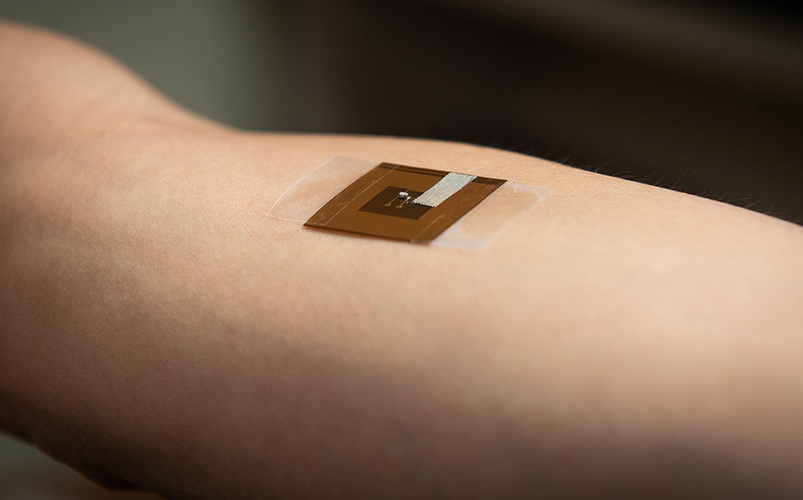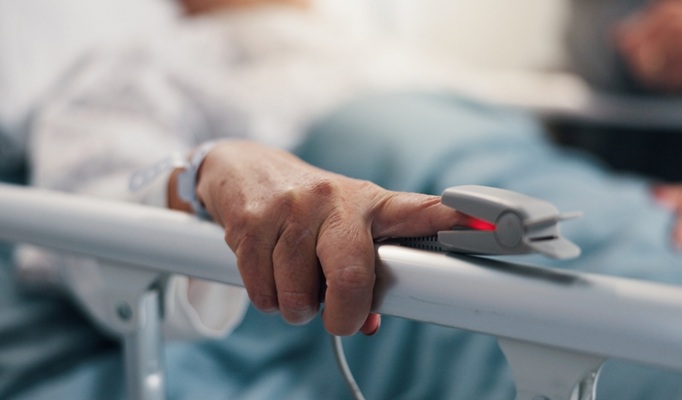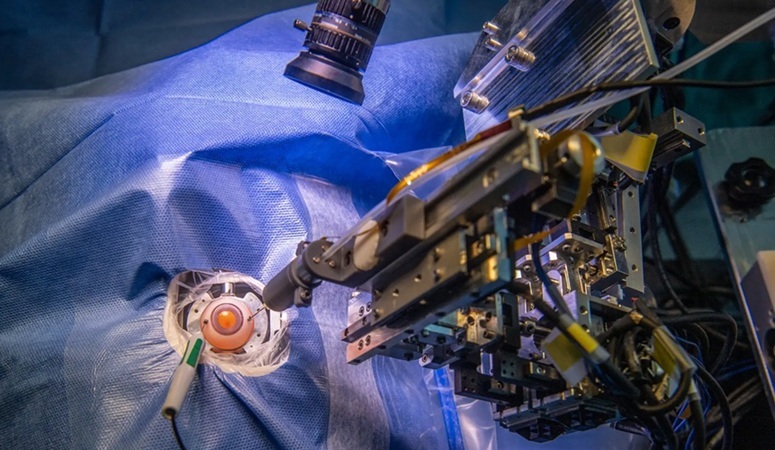ECMO Can Be Used as `Salvage Therapy` for COVID-19 Patients with Acute Respiratory Distress Syndrome, Finds New Study
|
By HospiMedica International staff writers Posted on 15 Apr 2021 |

Illustration
A large study has suggested survival benefit for severely ill COVID-19 patients treated with extracorporeal membrane oxygenation (ECMO).
The findings of the study by researchers at University of California, Irvine Medical Center (UCIMC; Orange County, CA, USA) support the use of ECMO as "salvage therapy" for COVID-19 patients with acute respiratory distress syndrome (ARDS) or respiratory failure who do not improve with conventional mechanical ventilatory support. For critically ill COVID-19 patients treated with ECMO, the risk of death remains high - but is much lower than suggested by initial studies, according to the new research.
ECMO is a life-sustaining therapy for carefully selected patients with respiratory or circulatory failure. Requiring specialized equipment and highly trained professionals, ECMO is mainly provided at large medical centers. While some hospitals have been using ECMO therapy for COVID-19 patients with severe ARDS, there is a "paucity of data" on outcomes, according to the authors. Initial case series reported "exceedingly high" mortality rates: over 90%.
For their study, the researchers analyzed the outcomes of 11,182 patients with COVID-19 and ARDS who received ECMO between April and September 2020. The patients were treated at 155 US medical centers; numbers of patients treated with ECMO ranged from 1 to 38 per hospital. The majority of patients were under the age of 50 years (57.9%) with about 37% aged 51 to 64 years. Only about 5% were aged 65 years or older. For these ECMO-treated COVID-19 patients with ARDS, the overall rate of in-hospital death was 45.9%. Although high, that is roughly half the mortality rate reported in smaller ECMO studies from early in the pandemic. It's also comparable to the 39% death rate in a recent analysis of about 1,000 patients from the Extracorporeal Life Support Organization registry (largely treated at higher-volume ECMO centers).
For patients in the new study, average length of hospital stay was lengthy: 37 days, including 29 days in the intensive care unit. The in-hospital mortality rate increased with age: from about 25% for patients aged up to 30 years, to 42% for those aged 31 to 50 years, 53% for those aged 51 to 64, and 74% for those aged 65 or older. The researchers performed a subset analysis comparing patients aged 18 to 64 who were treated with (1,113 patients) or without ECMO (16,343 patients). In-hospital mortality was 44.6% for the ECMO-treated patients compared to 37.9% for those treated without ECMO.
"Our findings refute previous reports of futility for ECMO therapy in the setting of COVID-19," said Fabio Sagebin, MD, of the UCIMC Division of Cardiothoracic Surgery. "Our data showed that patients with COVID-19 and ARDS treated with conventional ventilatory support had a high risk of death and patients selected for ECMO, which is a higher risk group, had a similarly high rate of death. The data suggests that in appropriately selected patients, we can save lives with this therapy."
Related Links:
UCIMC
The findings of the study by researchers at University of California, Irvine Medical Center (UCIMC; Orange County, CA, USA) support the use of ECMO as "salvage therapy" for COVID-19 patients with acute respiratory distress syndrome (ARDS) or respiratory failure who do not improve with conventional mechanical ventilatory support. For critically ill COVID-19 patients treated with ECMO, the risk of death remains high - but is much lower than suggested by initial studies, according to the new research.
ECMO is a life-sustaining therapy for carefully selected patients with respiratory or circulatory failure. Requiring specialized equipment and highly trained professionals, ECMO is mainly provided at large medical centers. While some hospitals have been using ECMO therapy for COVID-19 patients with severe ARDS, there is a "paucity of data" on outcomes, according to the authors. Initial case series reported "exceedingly high" mortality rates: over 90%.
For their study, the researchers analyzed the outcomes of 11,182 patients with COVID-19 and ARDS who received ECMO between April and September 2020. The patients were treated at 155 US medical centers; numbers of patients treated with ECMO ranged from 1 to 38 per hospital. The majority of patients were under the age of 50 years (57.9%) with about 37% aged 51 to 64 years. Only about 5% were aged 65 years or older. For these ECMO-treated COVID-19 patients with ARDS, the overall rate of in-hospital death was 45.9%. Although high, that is roughly half the mortality rate reported in smaller ECMO studies from early in the pandemic. It's also comparable to the 39% death rate in a recent analysis of about 1,000 patients from the Extracorporeal Life Support Organization registry (largely treated at higher-volume ECMO centers).
For patients in the new study, average length of hospital stay was lengthy: 37 days, including 29 days in the intensive care unit. The in-hospital mortality rate increased with age: from about 25% for patients aged up to 30 years, to 42% for those aged 31 to 50 years, 53% for those aged 51 to 64, and 74% for those aged 65 or older. The researchers performed a subset analysis comparing patients aged 18 to 64 who were treated with (1,113 patients) or without ECMO (16,343 patients). In-hospital mortality was 44.6% for the ECMO-treated patients compared to 37.9% for those treated without ECMO.
"Our findings refute previous reports of futility for ECMO therapy in the setting of COVID-19," said Fabio Sagebin, MD, of the UCIMC Division of Cardiothoracic Surgery. "Our data showed that patients with COVID-19 and ARDS treated with conventional ventilatory support had a high risk of death and patients selected for ECMO, which is a higher risk group, had a similarly high rate of death. The data suggests that in appropriately selected patients, we can save lives with this therapy."
Related Links:
UCIMC
Latest COVID-19 News
- Low-Cost System Detects SARS-CoV-2 Virus in Hospital Air Using High-Tech Bubbles
- World's First Inhalable COVID-19 Vaccine Approved in China
- COVID-19 Vaccine Patch Fights SARS-CoV-2 Variants Better than Needles
- Blood Viscosity Testing Can Predict Risk of Death in Hospitalized COVID-19 Patients
- ‘Covid Computer’ Uses AI to Detect COVID-19 from Chest CT Scans
- MRI Lung-Imaging Technique Shows Cause of Long-COVID Symptoms
- Chest CT Scans of COVID-19 Patients Could Help Distinguish Between SARS-CoV-2 Variants
- Specialized MRI Detects Lung Abnormalities in Non-Hospitalized Long COVID Patients
- AI Algorithm Identifies Hospitalized Patients at Highest Risk of Dying From COVID-19
- Sweat Sensor Detects Key Biomarkers That Provide Early Warning of COVID-19 and Flu
- Study Assesses Impact of COVID-19 on Ventilation/Perfusion Scintigraphy
- CT Imaging Study Finds Vaccination Reduces Risk of COVID-19 Associated Pulmonary Embolism
- Third Day in Hospital a ‘Tipping Point’ in Severity of COVID-19 Pneumonia
- Longer Interval Between COVID-19 Vaccines Generates Up to Nine Times as Many Antibodies
- AI Model for Monitoring COVID-19 Predicts Mortality Within First 30 Days of Admission
- AI Predicts COVID Prognosis at Near-Expert Level Based Off CT Scans
Channels
Critical Care
view channel
Wearable Patch for Early Skin Cancer Detection to Reduce Unnecessary Biopsies
Skin cancer remains one of the most dangerous and common cancers worldwide, with early detection crucial for improving survival rates. Traditional diagnostic methods—visual inspections, imaging, and biopsies—can... Read more
Pulse Oximeter Index Offers Non-Invasive Guides for Fluid Therapy
In patients with acute circulatory failure, deciding whether to administer intravenous fluids is often a life-or-death decision. Too little fluid can leave organs underperfused, while too much can cause... Read moreSurgical Techniques
view channel
Robotic Assistant Delivers Ultra-Precision Injections with Rapid Setup Times
Age-related macular degeneration (AMD) is a leading cause of blindness worldwide, affecting nearly 200 million people, a figure expected to rise to 280 million by 2040. Current treatment involves doctors... Read more
Minimally Invasive Endoscopic Surgery Improves Severe Stroke Outcomes
Intracerebral hemorrhage, a type of stroke caused by bleeding deep within the brain, remains one of the most challenging neurological emergencies to treat. Accounting for about 15% of all strokes, it carries... Read morePatient Care
view channel
Revolutionary Automatic IV-Line Flushing Device to Enhance Infusion Care
More than 80% of in-hospital patients receive intravenous (IV) therapy. Every dose of IV medicine delivered in a small volume (<250 mL) infusion bag should be followed by subsequent flushing to ensure... Read more
VR Training Tool Combats Contamination of Portable Medical Equipment
Healthcare-associated infections (HAIs) impact one in every 31 patients, cause nearly 100,000 deaths each year, and cost USD 28.4 billion in direct medical expenses. Notably, up to 75% of these infections... Read more
Portable Biosensor Platform to Reduce Hospital-Acquired Infections
Approximately 4 million patients in the European Union acquire healthcare-associated infections (HAIs) or nosocomial infections each year, with around 37,000 deaths directly resulting from these infections,... Read moreFirst-Of-Its-Kind Portable Germicidal Light Technology Disinfects High-Touch Clinical Surfaces in Seconds
Reducing healthcare-acquired infections (HAIs) remains a pressing issue within global healthcare systems. In the United States alone, 1.7 million patients contract HAIs annually, leading to approximately... Read moreHealth IT
view channel
Printable Molecule-Selective Nanoparticles Enable Mass Production of Wearable Biosensors
The future of medicine is likely to focus on the personalization of healthcare—understanding exactly what an individual requires and delivering the appropriate combination of nutrients, metabolites, and... Read moreBusiness
view channel
Philips and Masimo Partner to Advance Patient Monitoring Measurement Technologies
Royal Philips (Amsterdam, Netherlands) and Masimo (Irvine, California, USA) have renewed their multi-year strategic collaboration, combining Philips’ expertise in patient monitoring with Masimo’s noninvasive... Read more
B. Braun Acquires Digital Microsurgery Company True Digital Surgery
The high-end microsurgery market in neurosurgery, spine, and ENT is undergoing a significant transformation. Traditional analog microscopes are giving way to digital exoscopes, which provide improved visualization,... Read more
CMEF 2025 to Promote Holistic and High-Quality Development of Medical and Health Industry
The 92nd China International Medical Equipment Fair (CMEF 2025) Autumn Exhibition is scheduled to be held from September 26 to 29 at the China Import and Export Fair Complex (Canton Fair Complex) in Guangzhou.... Read more








.jpg)







